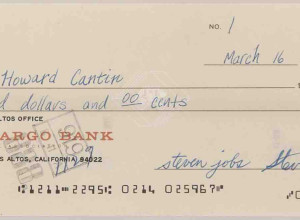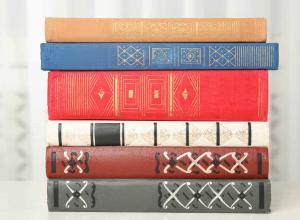Lyon & Turnbull to Offer a First Edition of Austen's Emma in Original Boards
A superb copy of Jane Austen's fourth novel Emma, valued at £15,000-20,000, will be sold by Lyon & Turnbull on the 7th May 2014. The book is inscribed "Lady M. Dalrymple, Oxenford Castle", in volume one and "Oxenford Castle" is inscribed in volume three.
Simon Vickers, Book Specialist at Lyon & Turnbull, said “2000 copies of the work were printed, and 1250 were sold within the first year. This copy is remarkable for the fact that it is in the original boards issued with the volumes, rather than having been rebound by an owner as was customary at the time. It is an excellent copy of a wonderfully subtle and entertaining work.”

Jane Austen’s (16 December 1775 - 18 July 1817) works of romance were set among the landed gentry and earned her a place as one of the most widely read writers in English literature. Her realism and biting irony and social commentary have gained her historical importance among scholars and critics.
Austen lived her entire life as part of a close-knit family located on the lower fringes of the English landed gentry. She was educated primarily by her father and older brothers as well as through her own reading. The steadfast support of her family was critical to her development as a professional writer. Her artistic apprenticeship lasted from her teenage years into her thirties. From 1811 until 1816, with the release of Sense and Sensibility (1811), Pride and Prejudice (1813), Mansfield Park (1814) and Emma (1815), she achieved success as a published writer. She wrote two additional novels, Northanger Abbey and Persuasion, both published posthumously in 1818, and began a third, which was eventually titled Sanditon, but died before completing it.
Her plots, though fundamentally comic, highlight the dependence of women on marriage to secure social standing and economic security. Her works, though usually popular, were first published anonymously and brought her little personal fame and only a few positive reviews during her lifetime, but the publication in 1869 of her nephew's, James Edward Austen-Leigh, A Memoir of Jane Austen introduced her to a wider public. He recounts his Aunt Jane’s comments before she began writing Emma: “I am going to take a heroine whom no one but myself will much like.”
Indeed, in many ways, the eponymous heroine of Jane Austen’s novel has often been regarded as slightly spoilt, and somebody who enjoys meddling in the lives of others, considering matchmaking “…the greatest amusement in the world”.
Of course, Jane Austen had become well-known and respected long before the publication of Emma, as the title-page of the work shows, reading, “By the author of Pride and Prejudice”. Austen’s work was especially loved by the Prince Regent, later George IV, who invited her, via one of his physicians who was attending to Austen’s brother, to visit his library at Carlton House. Apparently, the prince kept a set of Austen’s novels, “in every one of his residences.” Mr Clarke, the prince’s librarian, duly showed Austen around the library, and finally requested that she dedicate her next work to the prince. As Emma was in the press at the time, the dedication had to be speedily added on.















